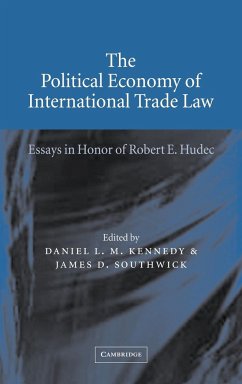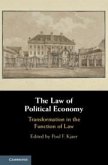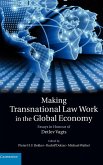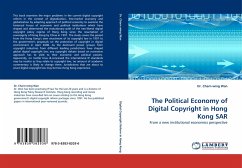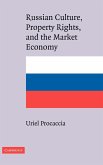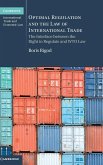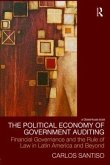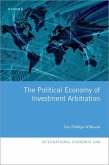International experts from law, economics and political science provide in-depth analysis of international trade issues. Attorneys, economists, and political scientists adopt a common viewpoint, entitled 'transcending the ostensible'. This approach directs particular attention to the possibility that WTO legal institutions, like other international legal institutions, will function in unexpected ways due to the political and economic conditions of the international environment in which they have been created, and in which they operate. A range of trade problems are considered here. Topics include the constitutional dimensions of international trade law, adding new subjects and restructuring existing subjects to international trade law, the legal relations between developed and developing countries, and the operation of the WTO dispute settlement procedure. This will be an essential volume for professionals and academics involved with international trade policy.
Table of contents:
Introduction; Part I. The Constitutional Developments of International Trade Law: 1. Sovereignty, subsidiary and separation of powers: the high wire balancing act of globalization John H. Jackson; 2. Constitutionalism and WTO law: from a state-centered approach towards a human rights approach in international economic law Ernst-Ulrich Petersmann; 3. WTO decision-making: is it reformable? Friedl Weiss; 4. Some institutional issues presently before the WTO Pieter J. Kuijper; 5. Domestic regulation and international trade: where's the race? Ronald A. Cass and John R. Haring; Part II. The Scope of International Trade Law: Adding New Subjects and Restructuring Old Ones: 6. What subjects are suitable for WTO agreement? Brian Hindley; Comment Joel P. Trachtman; 7. International action on bribery and corruption: why the dog didn't bark in the WTO Kenneth W. Abbott and Duncan Snidal; Comment: It's elementary, my dear friends Fred Morrison; 8. Alternative national merger standards and the prospects for international cooperation Daniel J. Gifford and Robert T. Kudrle; Comment: Harmonizing global merger standards E. Thomas Sullivan; 9. Agriculture on the way to firm international trading rules Stefan Tangermann; Part III. Legal Relations between Developed and Developing Countries: 10. The Uruguay Round North-South Grand Bargain: implications for future negotiations Sylvia Ostry; Comment: The Uruguay Round North-South Bargain: will the WTO get over it? Michael Finger; 11. The TRIPS-legality of measures taken to address public health crises: responding to USTR-State-Industry positions that undermine the WTO Frederick M. Abbott; Comment: The TRIPS agreement T. N. Srinivasan; 12. 'If only we were elephants': the political economy of the WTO's treatment of trade and environment matters Gregory C. Shaffer; Comment Sara Dillon; 13. The Seattle impasse and its implications for the WTO John S. Odell; Comment Robert Howse; 14. Developing country interests in WTO agricultural policy G. Edward Schuh; Comment: developing country interests in WTO agricultural policy Terry L. Roe; Part IV. The Operation of the WTO Dispute Settlement Procedure: 15. Testing international trade law: empirical studies of GATT/WTO dispute settlement Marc L. Busch and Eric Reinhardt; 16. The appellate body and its contribution to WTO dispute settlement Debra P. Steger; 17. A permanent panel body for WTO dispute settlement: desirable or practical? William J. Davey; Comment: step by step to an international trade court Amelia Porges; 18. International trade policy and domestic food safety regulation: the case for substantial deference by the WTO dispute settlement body under the SPS agreement Michel Trebilcock and Julie Soloway; Comment: the case against clarity Daniel A. Farber; 19. Judicial supremacy. Judicial restraint and the issue of consistency of preferential trade agreements with the WTO: the apple in the picture Petros C. Mavroidis; 20. Rethinking WTO trade sanctions Steve Charnovitz; 21. Problems with the compliance structure of the WTO dispute resolution process Gary N. Horlick; 22. 'Inducing compliance' in WTO Dispute Settlement David Palmeter and Stanimir A. Alexandrov.
Experts from law, economics, and political science provide in-depth analysis of international trade issues. Contributors consider WTO legal institutions as functioning in unexpected ways due to the political and economic conditions of their international environment. This is an essential volume for professionals and academics involved with international trade policy.
Experts from law, economics, and political science provide in-depth analysis of international trade issues.
Hinweis: Dieser Artikel kann nur an eine deutsche Lieferadresse ausgeliefert werden.
Table of contents:
Introduction; Part I. The Constitutional Developments of International Trade Law: 1. Sovereignty, subsidiary and separation of powers: the high wire balancing act of globalization John H. Jackson; 2. Constitutionalism and WTO law: from a state-centered approach towards a human rights approach in international economic law Ernst-Ulrich Petersmann; 3. WTO decision-making: is it reformable? Friedl Weiss; 4. Some institutional issues presently before the WTO Pieter J. Kuijper; 5. Domestic regulation and international trade: where's the race? Ronald A. Cass and John R. Haring; Part II. The Scope of International Trade Law: Adding New Subjects and Restructuring Old Ones: 6. What subjects are suitable for WTO agreement? Brian Hindley; Comment Joel P. Trachtman; 7. International action on bribery and corruption: why the dog didn't bark in the WTO Kenneth W. Abbott and Duncan Snidal; Comment: It's elementary, my dear friends Fred Morrison; 8. Alternative national merger standards and the prospects for international cooperation Daniel J. Gifford and Robert T. Kudrle; Comment: Harmonizing global merger standards E. Thomas Sullivan; 9. Agriculture on the way to firm international trading rules Stefan Tangermann; Part III. Legal Relations between Developed and Developing Countries: 10. The Uruguay Round North-South Grand Bargain: implications for future negotiations Sylvia Ostry; Comment: The Uruguay Round North-South Bargain: will the WTO get over it? Michael Finger; 11. The TRIPS-legality of measures taken to address public health crises: responding to USTR-State-Industry positions that undermine the WTO Frederick M. Abbott; Comment: The TRIPS agreement T. N. Srinivasan; 12. 'If only we were elephants': the political economy of the WTO's treatment of trade and environment matters Gregory C. Shaffer; Comment Sara Dillon; 13. The Seattle impasse and its implications for the WTO John S. Odell; Comment Robert Howse; 14. Developing country interests in WTO agricultural policy G. Edward Schuh; Comment: developing country interests in WTO agricultural policy Terry L. Roe; Part IV. The Operation of the WTO Dispute Settlement Procedure: 15. Testing international trade law: empirical studies of GATT/WTO dispute settlement Marc L. Busch and Eric Reinhardt; 16. The appellate body and its contribution to WTO dispute settlement Debra P. Steger; 17. A permanent panel body for WTO dispute settlement: desirable or practical? William J. Davey; Comment: step by step to an international trade court Amelia Porges; 18. International trade policy and domestic food safety regulation: the case for substantial deference by the WTO dispute settlement body under the SPS agreement Michel Trebilcock and Julie Soloway; Comment: the case against clarity Daniel A. Farber; 19. Judicial supremacy. Judicial restraint and the issue of consistency of preferential trade agreements with the WTO: the apple in the picture Petros C. Mavroidis; 20. Rethinking WTO trade sanctions Steve Charnovitz; 21. Problems with the compliance structure of the WTO dispute resolution process Gary N. Horlick; 22. 'Inducing compliance' in WTO Dispute Settlement David Palmeter and Stanimir A. Alexandrov.
Experts from law, economics, and political science provide in-depth analysis of international trade issues. Contributors consider WTO legal institutions as functioning in unexpected ways due to the political and economic conditions of their international environment. This is an essential volume for professionals and academics involved with international trade policy.
Experts from law, economics, and political science provide in-depth analysis of international trade issues.
Hinweis: Dieser Artikel kann nur an eine deutsche Lieferadresse ausgeliefert werden.

